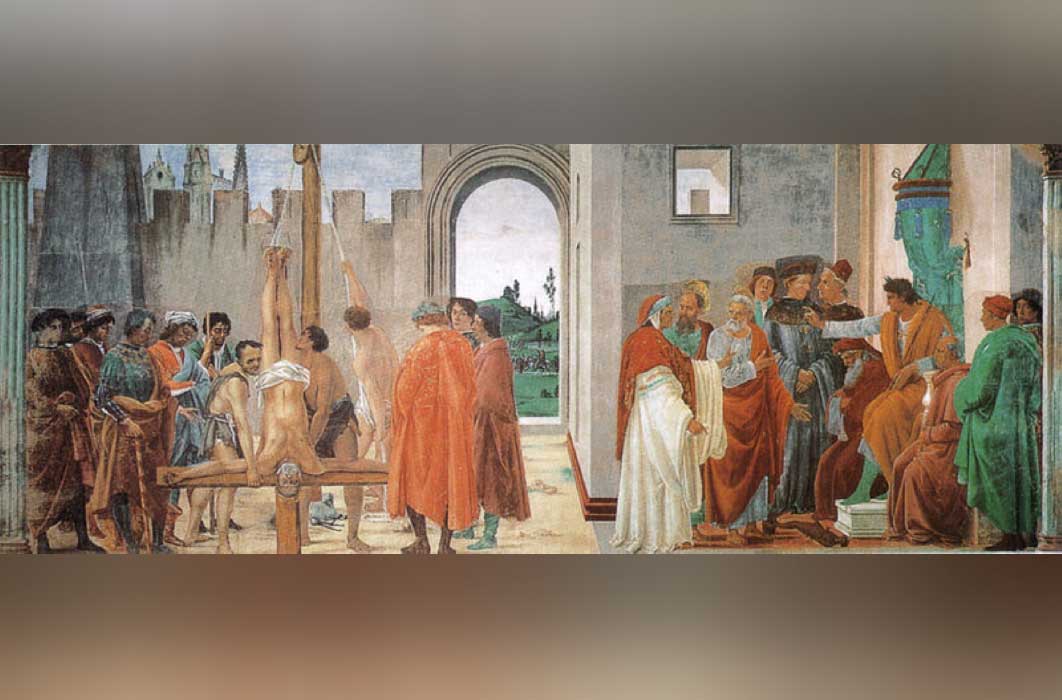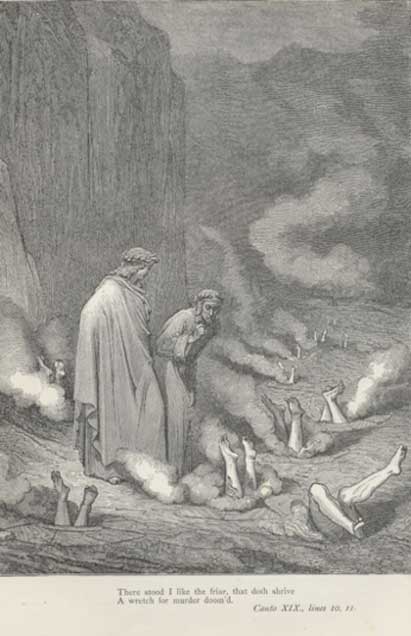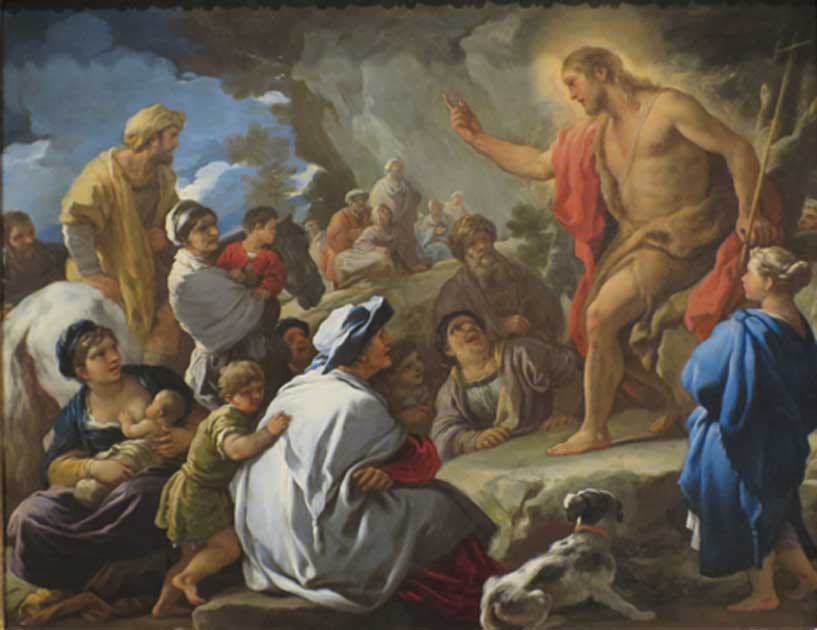
Tracing the Fall of Simon Magus to Ariccia, Rome
"O Simon the magician, o wretched followers
That the things of God, that of goodness
Do not be brides, and you birds of prey
for gold and for silver, which are turned upside down,
Now it's time for you to play the trumpet,
But that the third bedlam is..."
In the 19th canto of the Inferno in the Third Bolonia of Circle VIII, Dante Alighieri admonishes the simonians – followers of Simon the Magus, including Pope Niccola de li Orsini of Rome - to be forever stuck upside down with their heads in the bare ground, with flames burning their feet. He is echoing Simon Peter, the Prince of the Apostles and his irrevocable condemnation: "May your silver perish with you, because you thought of buying with money the free gift of God," (Acts of the Apostles, VIII, 20) referring to the incident where his contemporary and nemesis, Simon Magus, tried to bribe Saint Peter the apostle to receive the thaumaturgical faculties granted by the Holy Spirit, in order to perform miracles.

The bolonia of the simoniacs, as in Dante’s Inferno, illustration by Gustave Doré (Public Domain)
The Origins and History of Simon Magus
Born in Gitta, a village in Narbattene Samaria, he was the son of Anthony and Rachel, and he spent his childhood in Alexandria, Egypt, where he had received a Greek education.
“Now there was a man in the city named Simon, who, before that, had practiced the magical arts and had made the nation of Samaria marvel, saying that he himself was someone great,” (Acts VIII, 9).
As an adult he became a disciple of John the Baptist or Dositheus, who followed the teachings of the Baptist. He is said to have converted and had been baptized by Philip, the author of a Gnostic Gospel found in 1945 in Nag Hammadi, who came to that land to spread the esoteric belief of Jesus Barabbas.
“Simon himself became a believer, and, after being baptized, was constantly at Filipppo, and marveled at the signs and the great works I've seen some powerful things happen." (Acts VIII,13).

Saint John the Baptist Preaching' by Luca Giordano (1695) (Public Domain)




